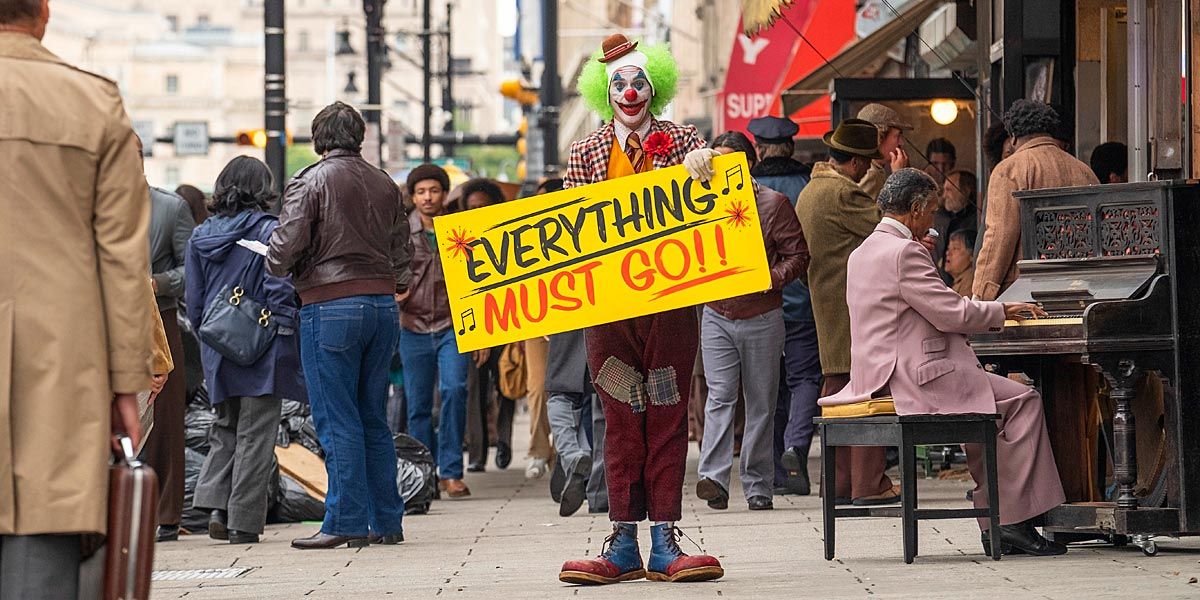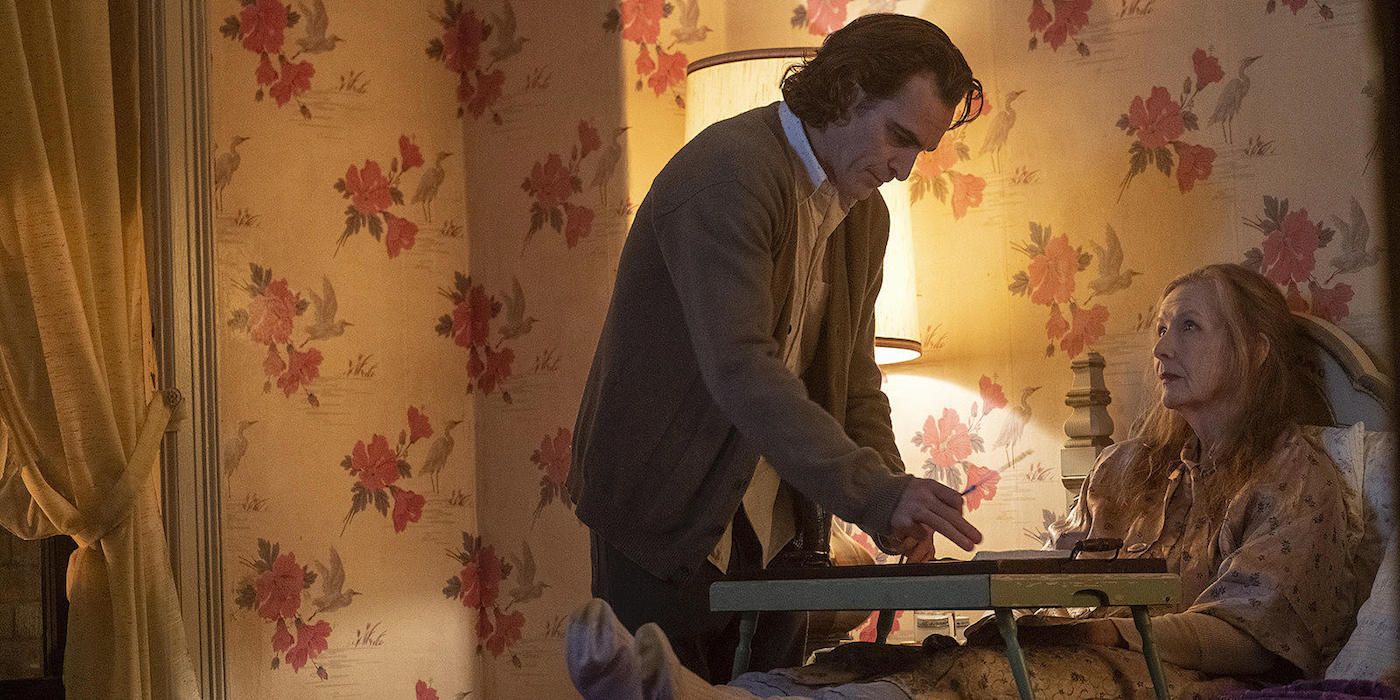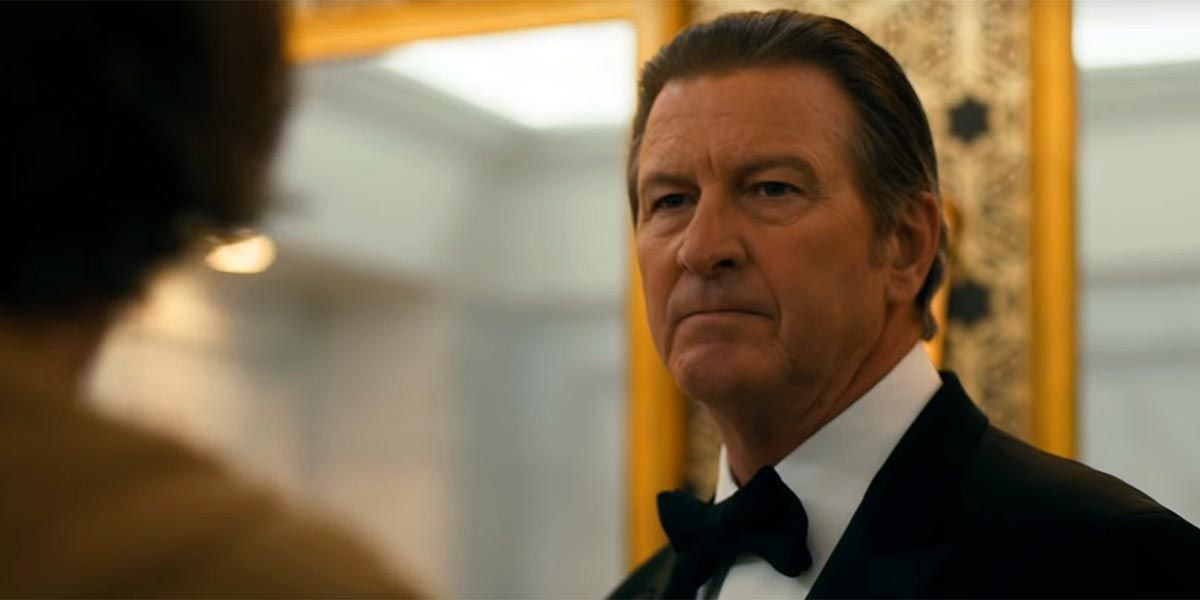WARNING: The following contains spoilers for director Todd Phillips' Joker, in theaters now.
As much as we think Todd Phillips' Joker is the story of Arthur "Happy" Fleck's (Joaquin Phoenix) break down and evolution into a murderer, there's much more to the film than meets the eye. This is especially true when you dissect the circumstances that give rise to this version of the Clown Prince of Crime.
Upon further inspection, it's not so much Arthur -- a mentally deranged but sympathetic figure -- who's the villain of the story. As the movie rolls on, you realize he's merely a product of his environment: abusive parents, toxic males all over and, simply put, a city where the elite leave the downtrodden like Arthur fighting for crumbs. In fact, when you take all these things together and analyze why Arthur broke bad, it's painfully obvious that Gotham's worst enemy has always been itself.
The city is easily the true villain of the story, pushing Arthur over the edge by mounting issue on top of issue. What stands out, though, is he's not the only victim. There are so many other impoverished victims abandoned by Gotham society. Arthur's just the only one who decides to do something about it. Admittedly, he never intended for his reprisals to start a political movement and give rise to the Joker riots, but when he sees the citizens burning Gotham at the end of the film, he does feel vindicated.
Usually, we've seen Batman narrative spun where the villains are driven by a lust for money, power and control -- and in some cases, the Bat himself is blamed for creating these bad guys. But in Joker, Gotham's to blame. When Arthur shoots three bankers dead midway through the film, you can see this is a city that doesn't care about anyone if they're not in the one percent.
Earlier, the character tries to seek help for his psychosis, but the program's funding is cut and his complaints about how many mental patients will suffer fall on deaf ears. In fact, Gotham's in a mini-depression, plagued with job cuts, angry folks living in despair and teenagers engaged in petty crime, which Arthur points out is due to the exploitation of the wealthy.
This is what makes Arthur more depressed, as Gotham's no longer kind, compassionate or caring. Old people, like his mom Penny, die without anyone giving a damn, and when she talks about how she worked for Thomas Wayne, it dawns on Arthur that they're all ants. Still, it doesn't matter if it's a menial job like his vocation as a clown. Arthur wants his people to rise above their circumstances and be happy despite the harsh truth that they're simply fighting for scraps. In fact, he takes joy from working at kids' hospitals, never letting poverty get to him. Yet, as he witnesses its effect on so many other people, he can't help but feel Gotham is lost. And by the time the film ends, he wonders if it's worth saving.
The city's corruption is perfectly summed up by Thomas Wayne's antics and campaign to run for mayor. It's fluff and PR simply meant to boost his ego, along with his political career. He continuously defends the rich folks and segregates them from the poor, even calling the lower-class "clowns" after the deaths of his yuppie bankers. Now, the cops knew it was a person dressed as a clown who killed the trio, but why did Thomas think it was a poor person? The men deserved retribution because they tried to sexually assault a woman on the subway. However, there's no reason Thomas would have known it was someone on the lower rungs of society's ladder. Thomas is a douche and represents all the rich folks who make excuses, showboat and use the poor to score media points.
The one percent are sucking Gotham dry and Thomas polarizes the city by spreading the the idea that the poor hate the rich because they're jealous. It's unfounded and irresponsible, especially as he sits in his mansion and enjoys grand nights out on the town. When he assaults Arthur who inquires if Thomas is his dad, you can tell Gotham's class divide is killing the city's moral compass -- and the rich have no problem making the gap bigger.
This is why underpaid cops are corrupt and partnering with criminals. And Thomas' condescending stance, all made from his ivory tower, is what sparks the 'Occupy Gotham' protests and leads the people to take back what's theirs. It's similar to Bane's No Man's Land in Christoper Nolan's The Dark Knight Rises, except in Joker, Gotham blatantly cateres to only a select few, making it clear how the city is directly responsible for its monsters.
When Arthur finally becomes the Joker on late night TV, his speech says it best: "What do you get when you cross a mentally-ill loner with a system that abandons him and treats him like trash? I'll tell you what you get. You get what you fucking deserve." It ties into his mindset that all it takes it "one bad day" to cross the line, and he's simply sick and tired of seeing so many of the common folk enduring these bad days.
Ultimately, Gotham drove itself to this tipping point. Joker is just the match that lit the fuse. And when the Waynes are killed at the end, their assailant makes it clear to them that this is the justice the city deserves, a purge decades in the making that is nothing short of course correction.



